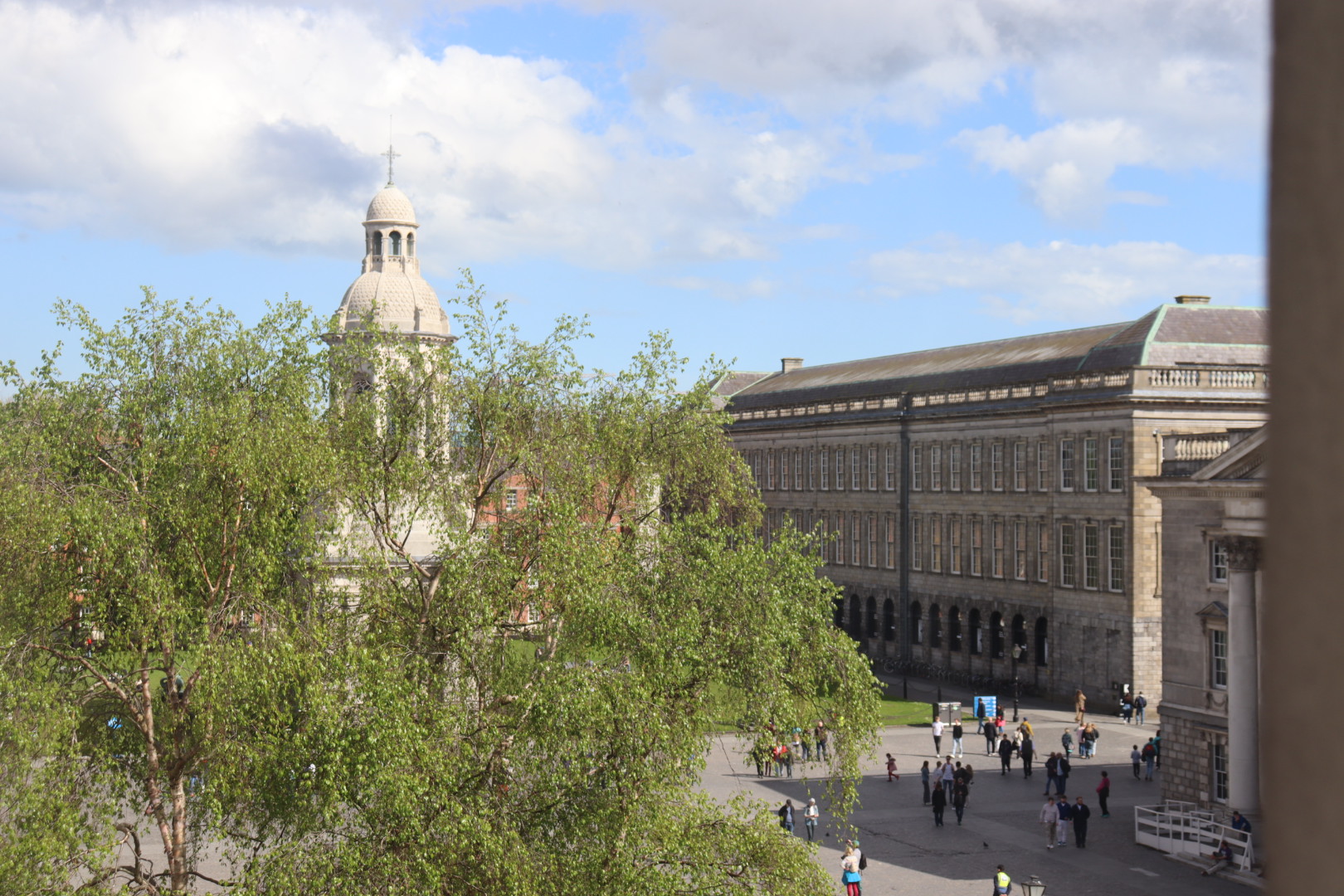Arthur O’Dea | Staff Writer
Beneath the mingling of comparative thinking and sport lies an assured folly; to remove the individual impact at the expense of shared effect, between every generation’s sporting heroes indicates a potential of perfection. However, perfection is relative, where history is all encompassing. If therefore, Gary Lineker tweets that Lionel Messi is in fact a better footballer then Diego Maradona was, as he did in the wake of Barcelona’s resurgent 4-0 win over A.C. Milan, thus suggesting that Messi is essentially the best footballer there ever was, how can one contemplate football’s elite players up until this point? Were the likes of Pele, Bobby Charlton, Zinedine Zidane, Ronaldo or indeed Maradona himself mere prophets displaying the skills the messiah in claret and blue would come to consummate faultlessly? Beyond the reach of football, do those who insist on the superiority of Roger Federer, Tiger Woods, Henry Shefflin or Katie Taylor in their respective fields relinquish the effects of the past for the adoration of the present? Insistence on the existence of a definitive #1 is instantly riddled with insurmountable problems.
At this moment in time Lionel Messi’s performances have been stellar not only in their devastating effect, but in the manner in which they were executed. His combined personal and collective haul of successes with Barcelona deems his contribution to football shall never be forgotten. However, this accumulation of success, done with such panache and electrifying ability can only ever be viewed relatively. The temptation to sensationalise instigates a belief that we surely must have a definitive ‘best’, not just presently, but of all time. James Lawton, writing for the Irish Independent waded into this very debate referenced by Lineker. In his opinion it is the lack of adoration Messi receives on his home front of Argentina that affirms Maradona and his World Cup winning heroics of 1986 shall remain the greater player as of now. Should Messi guide Argentina to success in Brazil 2014, one wonders how the sway of Argentinean thought may turn. However, with Maradona probably still rivalling even the newly elected Pope Francis in Argentinean favour, there may be no room left at either of God’s sides for the messianic figure of Messi. One wonders then what criteria the greatest ever must fulfil should such a position exist.
In the case of Maradona and Messi, it is the World Cup which stands between them football-wise, but for Lineker such a distinction is apparently not relevant. This same distinction plays a telling role also in a country such as England where the likes of Rooney, Gerrard, Terry or indeed Lineker etc, despite their domestic and continental impact at club level, shall never rival the likes of Charlton, Moore or Banks who captured the World in 1966. In this regard the cases of individual sporting figures like Federer, Woods and Taylor find their causes justified by a numbers game. While perhaps due to its continual emergence as a global sport, Katie Taylor’s dominance in the ring of women’s boxing assures her role as the pioneer of brilliance if indeed the greatest advocate too. For Federer or Woods, or indeed the aforementioned Shefflin and his Kilkenny side, the realms in which they excelled were truly specific to that date in time. In the course of a sporting career the fundamentals will rarely alter beyond recognition but the conditions may alarmingly fluctuate.
So, while posturing the match between Federer and Borg, Woods and Nicklaus, Shefflin’s Kilkenny against Ring’s Cork, should we consider the statistical records of each player’s performance, or the relative success in their field at that given time? In order to contemplate the idea of a greatest ever in any sporting field based on statistical evidence indicates that the standards of judgement must forever remain the same, and that at any given time success must be deemed comparable to previous success on that same stage. This simply is not the case and a sporting equivalent of Plato’s true form simply cannot exist in such a field of thought.
Therefore, when Lineker, a man who played at the very World Cup Maradona would make his own – not to mention in the very match where Maradona would illuminate the minuteness of the line which separates brilliance and notoriety, but ultimately leads to glory – insists that Messi’s dismantling of a rather average A. C. Milan side confirms his superiority one must really question his judgement. While the ordinary sporting fan can never really know football or any sport in comparison to those who made a living of it, perception is a gift bestowed to more than the ex-pros who give up playing for talking. When Lionel Messi broke Gerd Muller’s goal scoring exploits for a calendar year in 2012, few had had such cause to mention Muller since the days in which he stood as Franz Beckenbaur’s most dangerous target at the front of the Bayern Munich and West German attack. When one considers Messi’s goals, their numerousness and their quality are constantly aligned. He rarely scores a goal not worth re-watching. However, consider for a moment those truly vital goals and two will come to mind, both against Manchester United, and both in Champions League finals. One an exquisite looping header from a Xavi Hernandez cross, the other a 25 yard strike. Messi’s brilliance, while certainly the pinnacle of Barcelona’s power, is heavily supplemented by the support it is rendered. Behind Messi stands the stronghold of a Spanish side which has dominated continental football since 2008. Therefore, when one considers the success of Messi, so considerably aided by his teammates who remain sensational in their own right, against the exploits of Maradona who guided Argentina to the World Cup and the likes of Napoli to its only two Serie A titles, one is faced with the question of greatness. In contemplating the Messi vs. Maradona debate, the wide ranging sporting determination of the greatest ever finds its answer.
In Brazil, where football is known as ‘futebol-arte’, we stumble upon a potential answer. If indeed football is art then the question of craft subsides to the force of impact. Wide ranging media circulation determines Messi a global phenomenon. However, were Maradona to do today what he did in 1986 the scale of his appeal would be unchartered due to its enormity. Pablo Picasso determined art to be the elimination of all that is unnecessary. In this vain, if we insist on proclaiming benevolence to one, let it be the one who displays a performance closest to the artistic, rid of all unnecessary fictions and elements. Messi is now to football what Francis is to Catholicism; its leading example and exalted figure head. Maradona though is closer to Jesus Christ himself; for he too was flanked by followers awed by his presence while in 1986 he would seamlessly walk on water, treading lightly past the flailing limbs of an English defence.







